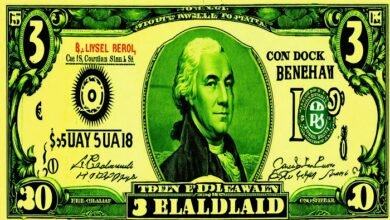
When asking “Which of the following instruments are traded in the capital markets? Check all that apply,” it’s essential to understand the breadth and depth of options available. Capital markets are vital for economic growth, providing a platform where individuals and institutions can buy, sell, or trade financial securities. This post will explore the various instruments commonly traded in these markets, highlighting how each plays a crucial role in the financial ecosystem.
S tocks
Stocks, or equities, represent ownership shares in a company. When you purchase a company’s stock, you’re essentially buying a piece of that company. Stocks are a cornerstone of the capital markets, offering potential for growth through capital gains and dividends. They attract a wide range of investors, from individuals to large institutions.
Bonds
Bonds are loan-like securities that represent a debt obligation by the issuer. Typically issued by corporations, municipalities, and governments, bonds pay periodic interest and return the principal upon maturity. They are traded extensively in capital markets due to their perceived safety and steady income stream.
Mutual Funds
Mutual funds are investment vehicles that pool money from many investors to purchase a diversified portfolio of stocks, bonds, or other securities. This diversification makes mutual funds a popular choice for investors who may not have the expertise or the time to manage individual securities.
Exchange-Traded Funds (ETFs)
Exchange-Traded Funds (ETFs) are similar to mutual funds but are traded on stock exchanges similar to individual stocks. ETFs offer advantages like lower fees and greater liquidity, making them a favored option for both novice and experienced investors exploring the capital markets.
Options
Options are contracts that give the holder the right, but not the obligation, to buy or sell an underlying asset at a specified price on or before a particular date. They are a form of derivatives and are used for hedging risk or speculating on price movements of assets like stocks.
Futures
Futures contracts are standardized agreements to buy or sell an asset at a predetermined price at a specified time in the future. These instruments are essential for both risk management and speculative purposes in the capital markets.
Commodities
Commodities such as gold, oil, and agricultural products are traded on the capital markets through futures contracts. These traded can be highly speculative or used by companies to hedge against price changes in essential goods.
Foreign Exchange (Forex)
The forex market is the world’s largest capital market, trading over $6 trillion per day. It involves the exchange of one currency for another and is crucial for international business and trade.
Cryptocurrencies
In recent years, cryptocurrencies like Bitcoin and Ethereum have also made their way into capital markets. These digital assets are known for their volatility and have introduced a new dynamic to traditional trading environments.
Real Estate Investment Trusts (REITs)
REITs offer investors the opportunity to invest in real estate without having to buy, manage, or finance properties themselves. Traded on major exchanges, REITs are a popular way to diversify investment portfolios within the capital markets.
Conclusion
”Which of the following instruments are traded in the capital markets? Check all that apply,” provides a foundational insight into the financial world. From stocks to cryptocurrencies, each instrument offers unique opportunities and risks. Investors should consider their financial goals and risk tolerance when choosing to trade in these diverse and dynamic markets.
FAQs
1.What are capital markets?
Capital markets are venues where savings and investments are channeled between suppliers who have capital and those who are in need of capital. This includes both the stock market and the bond market.
2.How do stocks differ from bonds in the capital markets?
Stocks offer ownership in a company, while bonds are considered a loan made by the investor to the bond issuer. Generally, stocks are higher risk with potentially higher returns, whereas bonds offer lower risk and fixed income returns.
3.Can individuals trade in all these instruments?
Yes, individuals can trade in most of these instruments, either directly through brokerages or indirectly through mutual funds and ETFs. However, some instruments, like certain derivatives, might require more expertise to trade effectively.
4.Why are ETFs considered more advantageous than mutual funds?
ETFs generally offer lower expense ratios and greater liquidity than mutual funds. They can be bought and sold throughout the trading day at current market prices, unlike mutual funds, which only trade at the end of the trading day.
5.What role do derivatives play in the capital markets?
Derivatives, such as options and futures, are used primarily for hedging risks or speculating on future price movements of an asset. They are crucial tools for managing risk and capitalizing on market opportunities.





